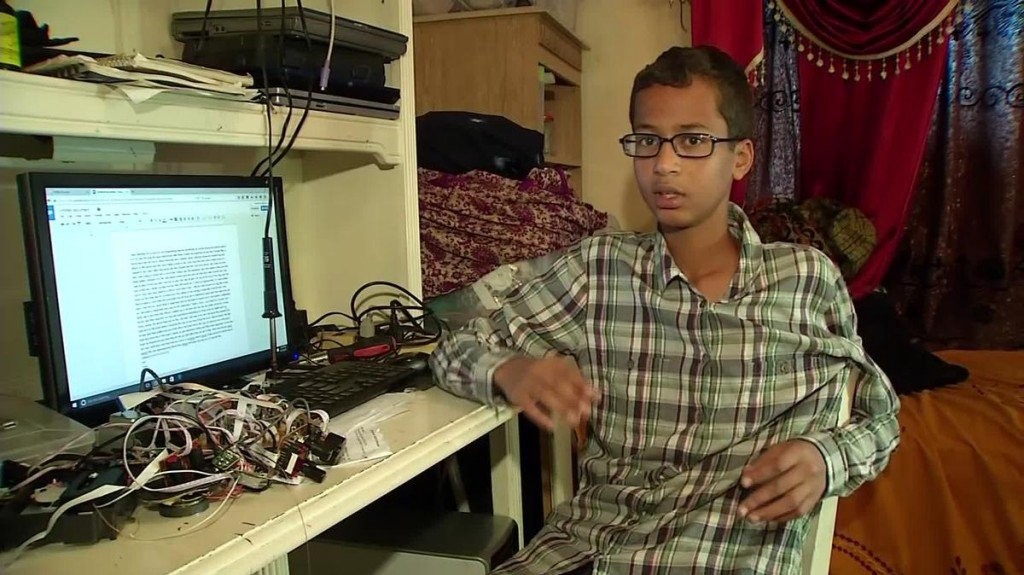Info Stormer
September 28, 2015

Don’t laugh. The desert monkey terrorist Ahmed Mohamed is now apparently suffering from Post-traumatic Stress Disorder or PTSD after being arrested for bringing a hoax bomb to his school. Oh sorry, it was a “cool clock” if we are to believe the monkey occupied White House lol.
All of this is according to his parents.
PTSD though? Seriously? STFU. If anybody should be suffering from PTSD it is the people in the school who thought this sneaky little camel jockey brought in a real bomb. This terrorist bomb hoaxer should be put in a jail cell. Or better yet, let’s just deport him and the rest of his family to the Middle East where they belong.
The parents of Ahmed Mohamed, the Irving, Texas teen who brought a suspected “hoax bomb” to high school, claim that “Ahmed has been severely traumatized” by his high profile run-in with the law.
Mohamed served three days suspension following an arrest over the confusing-looking suitcase timepiece he crafted on his own volition, a 120 volt mass of circuitry and wires from a commercially dissembled clock. The high school freshman took it in to show off to his high school engineering teacher, who after seeing it advised him to put it in his locker. Instead, the teen brought it to his English class where he freaked out that teacher when the plugged in homemade experiment started to beep. “She was like, it looks like a bomb,” Ahmed Mohamed told news media. School district administrators and Irving police thought it resembled a bomb, too, however, no charges were filed.
Through a press release last Wednesday, the family insisted their son now suffers with severe trauma as a result of his ordeal. Post-traumatic stress disorder (PTSD) is a very serious affliction often associated with prolonged military combat. Symptoms vary. They often surface within three months of a traumatic event, although, in some cases manifest years later. They must be ongoing for at least a month after an incident to be diagnosed. The Mayo Clinic lists a few key symptoms as memory flashbacks, avoiding talking about the traumatic event, inability to remember aspects of the traumatic event, negative feelings and hopelessness, trouble concentrating or sleeping, easily startled or frightened, and self-destructive behavior. PTSD’s many tell-tale signs make it difficult to go about daily life, go to school or work, be with friends, or take care of important tasks says the National Institute of Mental Health.
